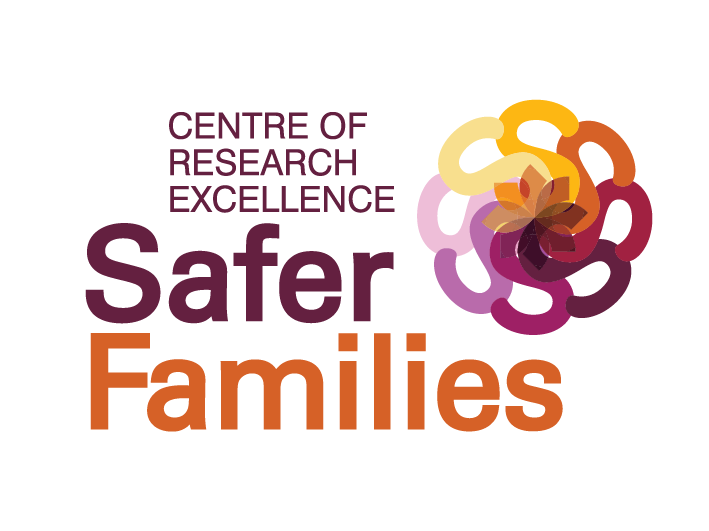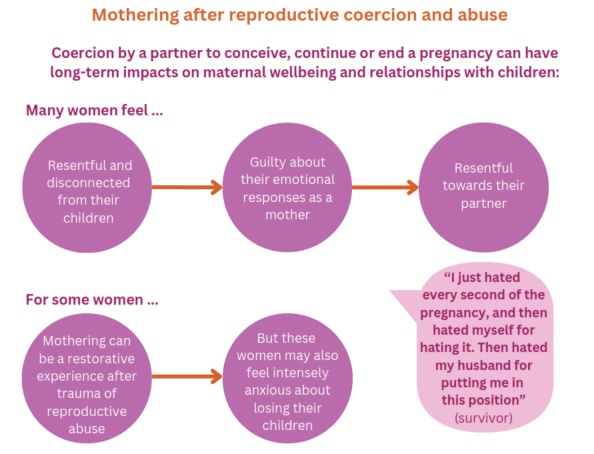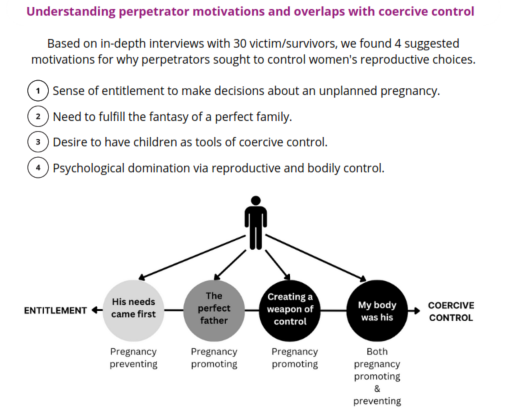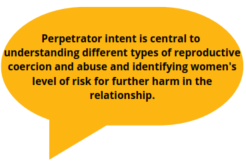Reproductive coercion and abuse
In our work on psychological violence we have an improved understanding of women’s experiences of and support needs for different types of reproductive coercion and abuse (RCA).
Through our research funded by the Oak Foundation we have published two peer-reviewed manuscripts on women’s support needs from the health system.
Reproductive coercion and abuse in intimate relationships: Women’s perceptions of perpetrator motivations (Tarzia & McKenzie 2024) addresses the different types and contexts of RCA and how these intersect with coercive control and psychological violence. Pregnancy promoting behaviour (or both pregnancy promoting and preventing behaviour by the same perpetrator) is most likely to correspond with severe coercive control, whereas pregnancy preventing behaviour alone is more likely to be motivated by selfishness.
Mothering in the aftermath of reproductive coercion and abuse (McKenzie & Tarzia 2024) explores women’s experiences of RCA and its impact on mothering, highlighting the profound and long-term negative repercussions of RCA for women and children.
We have since developed tools such as scripts and practice guidelines for health professionals addressing women’s support needs after RCA based on our qualitative interviews from these studies. The tools have been reviewed and piloted across key health settings.
We have also developed recommendations for a brief universal screening tool which we hope to develop and test in an upcoming research project.
Things you could say and do for patients experiencing reproductive coercion: Download tool HERE
Also see our Clinical Toolkit to help guide conversations on domestic and family violence and to enhance health practitioner readiness to identify and respond.
Key learnings from this piece of work were around the complexity of RCA and that different behaviours and contexts may align with different types of violence. Some forms of RCA may not be linked to coercive control but rather, be motivated by self interest by the perpetrator. This has advanced the field of RCA studies (which has previously referred to RCA as a “type of coercive control) as well as having implications for risk assessment and response.







